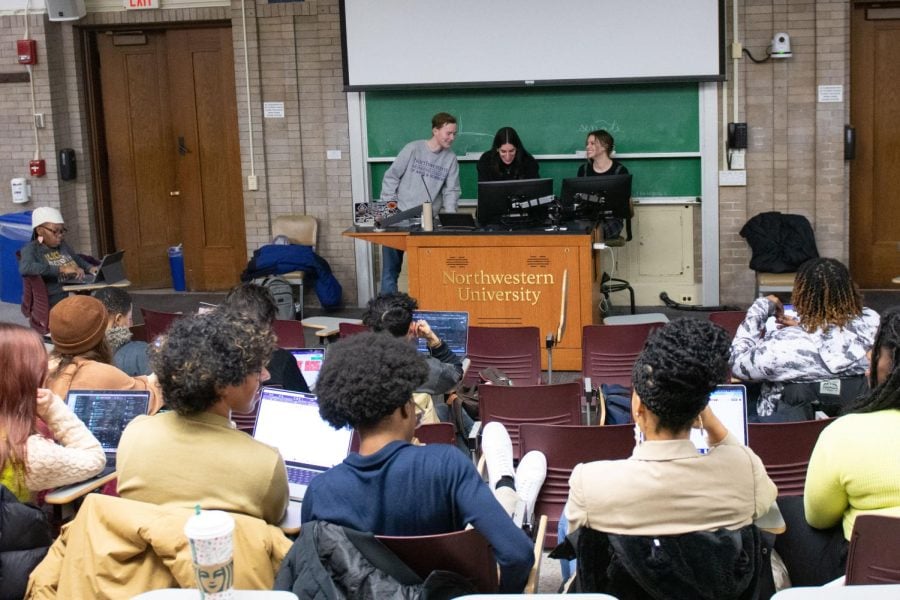ASG Senate implements trial run to modify weekly meeting structure, selects Election Commission
Katie Chen/The Daily Northwestern
Speaker of the Senate Dylan Jost said the new weekly structure could result in more productive meetings.
January 26, 2023
Associated Student Government announced Wednesday a four-week trial run of a newly proposed Senate order that could eventually end weekly meetings.
ASG Senate leadership will hold a town-hall style meeting the week of Feb. 8, inviting students to voice concerns and comment on legislation, according to Senate Parliamentarian and SESP junior Dalia Segal-Miller.
During Wednesday’s Senate meeting, she said an asynchronous work week would be followed by a regular meeting and a legislation implementation meeting in the following two weeks.
This proposed structure could become permanent if senators vote in favor of it after the four-week test period.
Speaker of the Senate Dylan Jost said he looks forward to the normal Senate meeting that will take place during the third week of the trial, after two weeks of experimentation.
“That one is going to be a very productive one,” Jost said. “Rather than spreading ourselves thin over several Senate meetings, we will be able to get a lot done and have a lot to discuss in that one meeting.”
Segal-Miller said changes to the Senate order have been discussed for several years. However, the upcoming legislation, which Jost described as Segal-Miller’s “brainchild,” is a step toward implementing long-discussed reforms like altering weekly meeting schedules, according to Senate leadership.
Jost said Senate leadership hopes to learn from the trial-run along with Senators as they assess how structural changes can address recurring problems in the body.
“(The changes are) in response to several things, part of which is lower attendance among Senators,” Jost said. “That has been a perennial issue for many years.”
The Senate also elected a nine-member Election Commission to supervise ASG leadership elections this Spring during Wednesday’s meeting.
Communication senior and ASG Executive Officer of Justice and Inclusion Jo Scaletty, who previously served as Chair of the Election Commission in Spring 2022, said overseeing candidates is crucial to upholding the “faith and structure” of elections.
“Last year, we had a few strikes and violations of the rules that we needed to keep track of,” Scaletty said. “So having a dedicated group of people to keep track of the potential pitfalls and situations that arise in an election is really important.”
Because the Election Commission is an “impartial body,” senators who serve on the commission cannot endorse or assist any candidates in the election, according to Jost.
ASG President and Weinberg senior Jason Hegelmeyer said he appreciates the commission’s role in upholding the integrity of the body and its elections.
The Senate also discussed past ASG election difficulties: last year, the Election Commission received reports of discrimination and harassment based on race and ethnicity in Spring 2022’s presidential election.
Hegelmeyer said he hopes this year’s commission can more clearly communicate which actions violate election code with candidates.
“Election commission is a demanding job, but I have no doubt that all of the people selected will do a great job doing it,” Hegelmeyer said.
Email: [email protected]
Twitter: @JulianAndreone
Related Stories:
— ASG Senate passes two resolutions, proposes ending weekly meetings
— ASG Senate discusses reforms for Ethnic Studies programs, Peer-Guided Study Group registration times
— ASG leadership details Winter Quarter legislative agenda, goals


